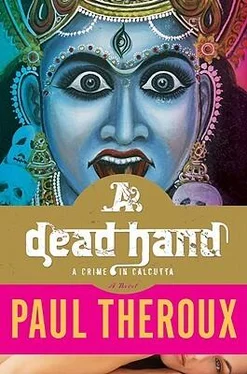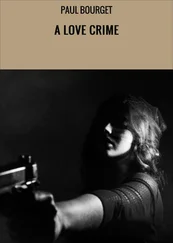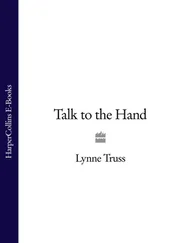As at Gauhati, we were met, this time by a shy young man in a tweed jacket. He stepped out of the crowd and introduced himself, sounding as if he was about to sell us something.
"Mrs. Unger, I am Sudeep. I will be your guide. May we fetch your luggage?"
Snarling, he summoned a porter, stern with this underling, then smiled at us and led the way down the platform and out to the front of the station, where a car was waiting.
"You got my message?" Mrs. Unger asked in the car.
"Indeed so, madam. All is in readiness."
I stared at them, hoping for an explanation, but they continued to speak in generalities.
"And the situation hasn't changed?"
"Situation, madam. Still very much same situation."
I lost interest in their generalities as the old car we were riding in began to shake — and to shake my head with it. The car tipped and banged on the broken road, the potholes four feet across and some of them deep enough to swallow half a tire.
"Is this a back street?"
"Main thoroughfare, sir. Mahatma Gandhi Road."
It was a ruin. We bumped among scooters and bullock carts and cycle-rickshaws, their bike bells tinkling. The shops along this main road were one story, paint peeling, signs faded, not many shoppers. I had thought Gauhati to be a step into the past, but Silchar was a stride into the distant past.
"We are cut off," Sudeep was saying, replying to something Mrs. Unger had said, and he was also answering an unasked question of mine. "But air is fresh. Cool climate. Very healthy."
In the dusty air, the shophouses tilted sideways on the sloping main street, which was worse than unpaved. It had been paved and shattered, potholes all over it, and its only smoothness was beaten earth. The cycle-rickshaws toppled along it, their skinny drivers standing on their pedals. The place was so poor there were no obvious beggars — no one to beg from, though many people stopped and stared, seeing Mrs. Unger and me alighting from the car.
"So, it's arranged for this evening?" she asked Sudeep.
"All arranged. You will find me here."
The hotel's bare lobby and plastic plants were being dusted by a woman in a green smock. Mrs. Unger dealt with the check-in formalities, and once again I felt I was being mothered, shepherded, paid for. We went upstairs, took showers, then had a meal in the hotel's dining room — the only diners, perhaps the only guests in the place. Afterward, Mrs. Unger said she wanted a nap.
We lay together on the bed. The accumulated fatigue of the trip to Lumding and the night train to Silchar had knocked me out, and knocked her out too, but just before she subsided into sleep she murmured, "Baby," and touching my face, "baby."
When we woke, night was falling, dusk at the windows, and I heard bike bells and crow squawks and the cries of hawkers.
"Find Sudeep downstairs," she said. "I'll be down in a little while."
Sudeep was of course standing in the lobby, in the posture of a sentry, awaiting his orders.
"You are coming from?"
"Calcutta. Have you been there?"
"I have not been to mainland at all," he said.
"Mainland?"
"Indeed, never. Only to Shillong and Gauhati."
That was new to me, but since we were so far east, like an island surrounded by Bangladesh and Burma, it seemed appropriate to refer to greater India as the mainland.
"All is in readiness," he said to Mrs. Unger when she came downstairs.
In the car, I tried to count the days since we'd left Calcutta, but the nights in the train, and the days of massage and sleep, defeated me. Perhaps four days — or was it five? All this time we'd penetrated deeper into Assam, the landscape growing stranger, leafier in the valleys, where the tea bushes provided a sort of continuity. But the orderliness of the tea estates was misleading. The villages had grown poorer and smaller, and Silchar, like a dead end, was weighted and slowed by its decay.
But Sudeep was upbeat. "It is crossroads," he was saying. "So many lorries passing hither and thither. We are vibrant. But there are dacoits on the road to Imphal. Goondas as well. Shillong also treacherous. Extremists are there."
"Where are we going now?"
Mrs. Unger said nothing. Sudeep said, "As requested, Nagapatti."
I felt it was some sort of test of loyalty, though I would have agreed to go anywhere with her. As we had gone farther into Assam, we had reached a new stage in our relationship. She must have seen that I was devoted, utterly loyal too, and dependent on her.
Mrs. Unger was doing me a great favor. She was bringing me into her world. I saw it as an initiation for which I had to be suitably passive. She had taken me by the hand and brought me by degrees to this remote town, which reflected a deeper intimacy between us. In the hotel in Gauhati she had encouraged me to stroke her as she lay, legs open, like the image of Kali I'd seen at the temple. She had hardly spoken, yet her posture was a physical expression of trust. She had luxuriated in my caresses, but I was the acolyte and she the priestess who had liberated me and shown me the way.
Now we were banging along the back streets of Silchar, the potholes deeper and more jarring in the dark. Oil lamps hung from stalls but illuminated nothing but themselves. The road ahead was black. We went about half a mile, not far, though we went slowly, almost at walking speed, and when we came to a road junction, Sudeep told the driver to stop.
"We will proceed by foot."
The road stank of mud and cow shit and motor oil, and the light was so poor it was hard to see where to walk. Again I marveled at Mrs. Unger's boldness. She was unfazed — white sari, white shawl, sandals — seeming to glide along the back street.
"I know where we are. Nagapatti is down that lane."
She set off confidently, Sudeep just behind her, and I was at the rear. As my eyes grew accustomed to the dark I could make out the contours of the lane, the lurking boys, stray dogs; some men squatting before a brazier of reddened coals, drinking tea, glanced up, muttering as we passed.
Luminous in her sari, Mrs. Unger glowed like an angel, her shawl over her head, moving quickly, her feet hardly seeming to touch the ground. And yet when she saw more people in the road, backlit by their fires, she took my hand.
"Madam," Sudeep said, his voice rising in a cautioning tone.
But we were ten steps ahead of him. She paused, turned to the right, and walked down another lane, where a head-high bamboo barrier had been erected. The thing was flimsy but effective. It blocked the opening of a narrow road: you had no idea what went on behind it. As she slipped past this barrier, she let go of my hand. I followed her. Then she stopped and stood looking down the lane, saying nothing yet serenely triumphant.
The lane was well lit — more than well lit: it was highly illuminated by bright lights and open fires. It was busy, a sort of market scene full of standing and crouching people. Looking closely, I saw that all of them were women — not women but girls and children grouped around the wood fires that were burning on both sides of the lane, in front of the shops and the houses, as far as I could see. The girls, and even the older children, hundreds of them, were garishly made up with red lipstick and blue eye kohl, wearing thin blouses in the chilly air, warming themselves by the fire.
Smoke and flames and the close-together bungalows and huts; girls around the fires, girls on the verandahs, girls leaning on the railings and crouched on the steps. Some had vicious faces, but most looked pathetic and lost. A few of the smaller girls were holding babies, and other small girls, hardly more than twelve or thirteen, kneeling near the lanterns, pursed their lips at me and smiled wickedly.
In the smoky air, a whole long lane of child prostitutes and transvestites. An old fat hag was seated just inside one open doorway, attended by a retinue of little whores, painting the fat woman's toenails or massaging her feet.
Читать дальше












